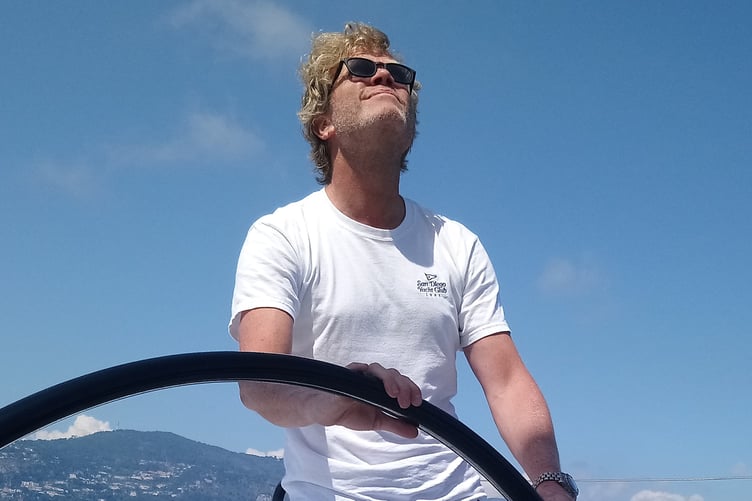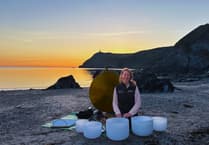A new composite material developed in the Isle of Man is being positioned as a potential sustainable alternative to conventional fibreglass and carbon-fibre composites.
The material, officially titled DANU Composite Technology, has been developed by local company ExoTechnologies, and is designed to be fully recyclable and strong enough for industrial applications that currently rely on non-recyclable composites.
Jeroen Wats, founder and chief innovation officer at ExoTechnologies, who has a background in high-performance yacht racing and yacht manufacturing, said his experience working extensively with traditional composite materials made the large scale of end-of-life waste apparent.
Fibreglass and carbon-fibre components used in boats, wind-turbine blades, vehicle parts and other sectors are generally landfilled at the end of their service life.
Mr Wats said: ‘All these materials like carbon fibre and glass fibre - you can't recycle it. It's just to dump in landfill and if you see the figures for this, they are unbelievably high.
‘What I tried to do in the beginning is to have something which is stronger than fibreglass and made from natural fibres, which can be recycled forever.’
The new material uses fibres derived from a certain type of naturally occurring volcanic rock.
Fibres from the rocks have been used in industrial settings before, but ExoTechnologies holds a patent on what it describes as a specific ‘recipe’ for producing the composite.
The precise formulation and type of rock remain confidential, but Mr Wats said the idea originated locally after observing rock formations on a local beach.
In testing, the material has been used to produce a motorsport helmet that passed Fédération Internationale de l’Automobile impact standards.
The helmet, described as approximately two millimetres thick, withstood a large impact test. Mr Wats said the component can be recycled entirely and remanufactured into another helmet or product, aligning with ExoTechnologies’ recyclable aims.
The new composite is not currently being applied in the Isle of Man, with most customers (such as marine, wind-energy and automotive companies) being based in the UK and across Europe.
ExoTechnologies focuses on innovations intended to reduce environmental impact in material science and marine design.
The company also holds a patent on a fuel-efficient hull design used in vessels for several public-sector clients, while the company’s broader objective is to address resource efficiency and end-of-life waste across sectors.
Mr Wats, who moved to the Isle of Man during the COVID-19 pandemic after previously living in Spain, said his long-standing interest in environmental issues contributed to the decision to shift from yacht manufacturing to full-time materials innovation.
He added: ‘Before I came here, I had never heard of the Isle of Man. But it’s fantastic, and it gives me everything that I want.
‘However, there are some things which can be improved.
‘You have the [UNESCO] Biosphere Award, which is great, but I think it should be split in two - one for the large corporations and one for the community.
‘It would be really valuable for kids and schools, for great initiatives such as beach cleaning and other environmental efforts.’


.jpeg?width=209&height=140&crop=209:145,smart&quality=75)
.jpeg?width=209&height=140&crop=209:145,smart&quality=75)
